Posted: August 24th, 2023 | Author: Matt | Filed under: DFW, personal | Tags: clips, DFW, Grace, Life writing, writing | No Comments »
This academic article is really a series of letters between Dr. Grace Chipperfield and me. It was published in January 2021 in the journal “Life Writing” and the subsequent book titled Essays in Life Writing. The question that Grace and I were grappling with is still one that stalks DFW Studies (and plenty of other fandoms): is there an ethical way to be a fan of a problematic artist?
I’ll paste the official abstract below.
ABSTRACT
In 2018, author Mary Karr tweeted about her abusive relationship with David Foster Wallace. This was at the height of #MeToo and cancel culture, where the phrase ‘problematic fave’ was commonplace. Wallace, dead for ten years but still alive in the public imagination, was suddenly brought into the conversation. Wallace’s fans, too, were implicated in his bad behavior, particularly by their reputation for being ‘lit-bros’. At the time, Grace Chipperfield was writing a doctoral thesis on Wallace, which eventually turned into a collection of essays that reckoned with both Wallace’s complicated legacy and her relationship to him as a fan, a scholar, and a woman. The final essay in the collection was a deep dive into Wallace fandom, and to write this Grace corresponded with members of the Wallace community, including one of its most dedicated and active participants: Matt Bucher. Here, then, is a sample of that correspondence. This essay is a series of letters between Grace and Matt throughout which they consider their moral obligations as fans in the age of the problematic fave.
Grace Chipperfield is a Fulbright Scholar and tutor in English and Creative Writing at Flinders University, South Australia. She recently completed her PhD in Creative Writing, a collection of essays on David Foster Wallace and his fans. She is on the board of the International David Foster Wallace Society and an associate editor for The Journal of David Foster Wallace Studies. Email: grace.chipperfield@flinders.edu.au
Posted: April 13th, 2023 | Author: Matt | Filed under: personal | Tags: Belan, belandeck, book, fiction, writing | No Comments »
I have a little book coming out soon. It is called The Belan Deck. It’s set mostly during a layover at SFO and it centers around a person who maybe doesn’t really fit in at their AI tech job but still needs to produce one final PowerPoint deck.
Here is the cover:
You can order it online at the following places:
Amazon – The Belan Deck
Barnes & Noble – The Belan Deck
Bookshop.org – The Belan Deck
Powell’s – The Belan Deck
——–
Here is a little excerpt from the book:
I am standing at the corner of Folsom and Embarcadero waiting for an Uber.
I can see the cars on the Bay Bridge frozen, stationary.
No MUNI trains are barreling down the Embarcadero at this time of day.
Beyond a few palm trees outlined in the aquamarine sky, just below the descending clouds, I can see the top of the arrow of Claes Oldenburg’s Cupid’s Span.
There is the breeze and the smell that seemingly never leaves San Francisco.
Fifty eight degrees.
I have the Uber app open, SFO as destination but have not yet hit Confirm.
I glance at the Teslas and SUVs in the intersection, glance back at my phone again.
There are several cars stopped on the Embarcadero, almost all Uber and Lyft drivers I’m certain.
Once I tap Confirm I know my ride will be accepted in seconds and I will get into one of these cars.
Just then I had an incoming call: Jimmy Chen.
I hate incoming calls and the immediate panic they induce.
Breathe in. Accept.
Hey Jimmy, I’m on my way to the airport right now. Gotta get back to Austin tonight. Can we talk later?
No, no, it’s fine. Totally understand. Just thought I’d give you a heads up that the meeting I mentioned, the one with the Board, that’s actually happening on Monday now and I just wanted, I mean, wanted to call you.
I can barely focus on what he’s saying. The traffic is muffling all other sounds and I need to get into this Uber right now.
I squint at a black sedan. The driver saw me looking at my phone.
Jimmy, is this regarding the issue of my ongoing employment?
That’s on the agenda. I mean, yeah, but I mean, I just wanted to give you a heads up. So I’ll need that deck on Sunday. The one for Belan.
A tech bro wearing a hoodie and a gray backpack shoots past me on a skateboard. A mother with a stroller maneuvers around me.
Can we talk about this later, please? I’m obstructing pedestrians and I’m on my way to the airport.
Yeah, yeah of course. Just wanted to give you a heads up. But I need that deck sooner rather than later, OK? Sunday morning if you don’t mind.
Got it.
End.
Tap Uber. Confirm.
Your driver is now arriving. Black Mercedes S580. License plate PEV4391.
The Embarcadero morphs into the 101 and soon we are stuck in the usual parking lot traffic. I don’t mind. I have an hour or three to spare.
I like to get to the airport early.
I don’t like to entertain the idea of being late.
Maybe that’s an understatement.
And, despite some awful experiences in the past, I don’t mind SFO.
It feels familiar. An old friend.
And I don’t think of myself as a typical business traveler. Whatever that means.
Weathered men, pale in drab suits, or, more likely now, in Salesforce-logoed Patagonia vests and quarter-zips, always on their laptops, racking up millions of miles, discussing sports or crypto.
That ain’t me.
Most of the time, at the airport, I can’t bring myself to do that sort of work anyway.
Physically, mentally, I don’t find the space conducive to office work.
I am a traveler. Even while commuting.
My preference is for a paper book, a pencil or pen, a paper notebook to write in, a restaurant or bar where I can watch the never-ending flow of humanity, then to go browse the shops, read some more.
Do nothing, in a way. For once.
I always have several paper journals on me at all times, especially when I travel.
Claes Oldenburg died of complications from a fall.
Falls are the leading cause of injury-related death among adults age 65 and older.
Belan is the Chairman and CEO. When I first met him, after I’d been hired and flown to San Francisco, I was shocked when I saw his name.
My great-grandfather had been named Belan when he was born, but had been adopted later at the age of 21 and he changed his name.
We call him Leo Steven. But I never met him.
When I met this Belan, the CEO, this was the first thing I told him.
Belan was a family name. On my dad’s side.
Just as I started to launch into the story, he cut me off: Interesting. Huh. Well, about this strategy deck you’re working on…
I’d never met another person named Belan in my life, and I doubt he had either but that apparently didn’t matter to him at all. He was all business, all the time. I could feel the stress emanating off him like steam.
I made it through the precheck line, no bags to check, and headed toward gate B39.
My phone vibrated. It was Amanda. She wasn’t my assistant, exactly. But she “supported” everyone on the team by doing things like booking travel and ordering office supplies and scheduling meetings.
Flight delayed 2 hours. Go to gate C42.
Thanks, I text back. Then I text my wife: Flight delayed, don’t wait up.
Belan had a few weird rules, like insisting no one use the word “I” in any memos or decks. Meetings must start at 10 minutes past the hour. No ties.
Jimmy told me: crack a golf joke to get on his good side, loosen him up. He loves the Kentucky Derby.
Incredibly, SFO has a bargain book store. Or at least I have never seen another airport bookstore with a large bargain section. And one stocked with many small-press books. I headed there before leaving B terminal.
One thing I spent too much time worrying about was the title of the PowerPoint deck.
Posted: August 16th, 2016 | Author: Matt | Filed under: personal | Tags: clips, InfiniteJest, interviews, writing | No Comments »
Over at Publishers Weekly I interviewed Jane Alison about her latest novel, Nine Island.
I wrote a short essay on Impostor Syndrome for Poor Yorick’s Summer (an Infinite Jest reading group).
Posted: March 14th, 2016 | Author: Matt | Filed under: personal | Tags: books, clips, reviews, writing | No Comments »
I reviewed Thomas Rayfiel’s excellent new novel Genius for the Chicago Review of Books.
Thomas Rayfiel’s <em>Genius</em> Tackles Sexuality, Philosophy, and Cancer
And at Mexico City Lit I wrote a review / appreciation of Carlos Velazquez’s first book in English, The Cowboy Bible.
http://mexicocitylit.com/matt-bucher-reviews-the-cowboy-bible-collage-by-alberto-pazzi/
Posted: February 25th, 2016 | Author: Matt | Filed under: personal | Tags: clips, interview, PW, Texas, writing | No Comments »
This week I wrote a piece of MEL magazine about job insecurity.
https://features.wearemel.com/company-loyalty-is-a-myth
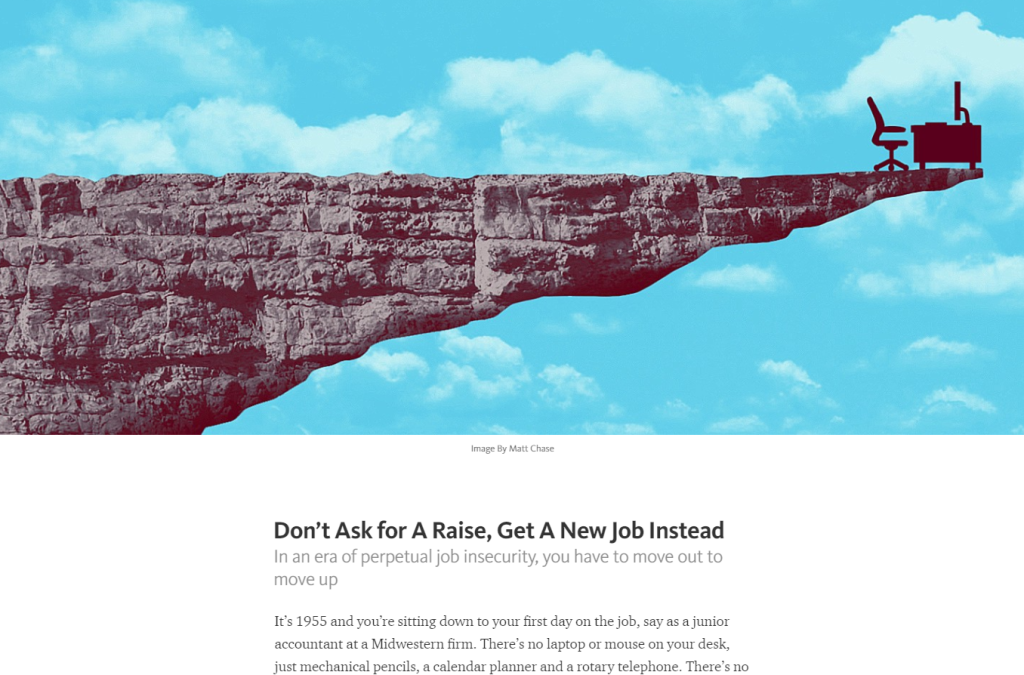
Also, I had a brief quote in this New Yorker piece about Infinite Jest.
http://www.newyorker.com/books/page-turner/beyond-infinite-jest
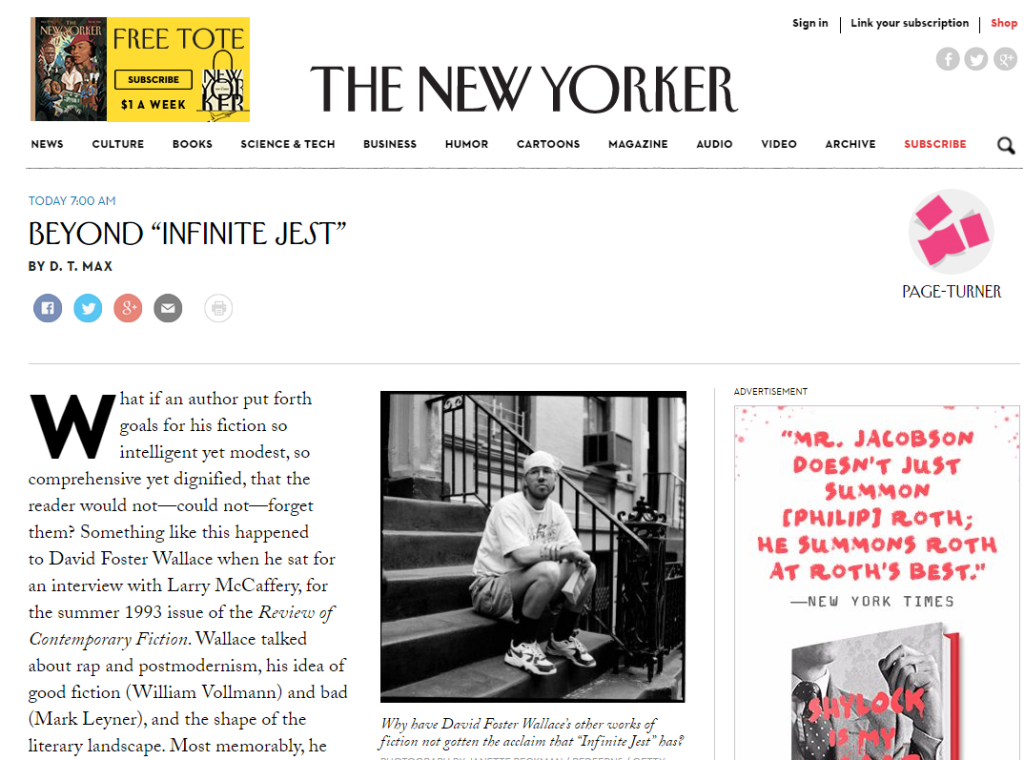
Over at Publishers Weekly, I interviewed author Laura Tillman about her new book The Long Shadow of Small Ghosts.
http://www.publishersweekly.com/pw/by-topic/authors/interviews/article/69409-scene-of-the-crime-pw-talks-with-laura-tillman.html
Posted: February 19th, 2016 | Author: Matt | Filed under: personal | Tags: clips, InfiniteJest, MEL, writing | No Comments »
For issue 3 of molossus, I reviewed Luis Felipe Fabre’s poems about Sor Juana.
http://www.molossus.co/the-long-story-of-bad-translations-on-luis-felipe-fabres-monsters/
I was intrigued by this book because I had seen Fabre’s name mentioned in a lot of prominent places but had not read his work. In fact, I saw somewhere on Twitter that Valeria Luiselli called Fabre the best contemporary poet in Mexico (or something along those lines).
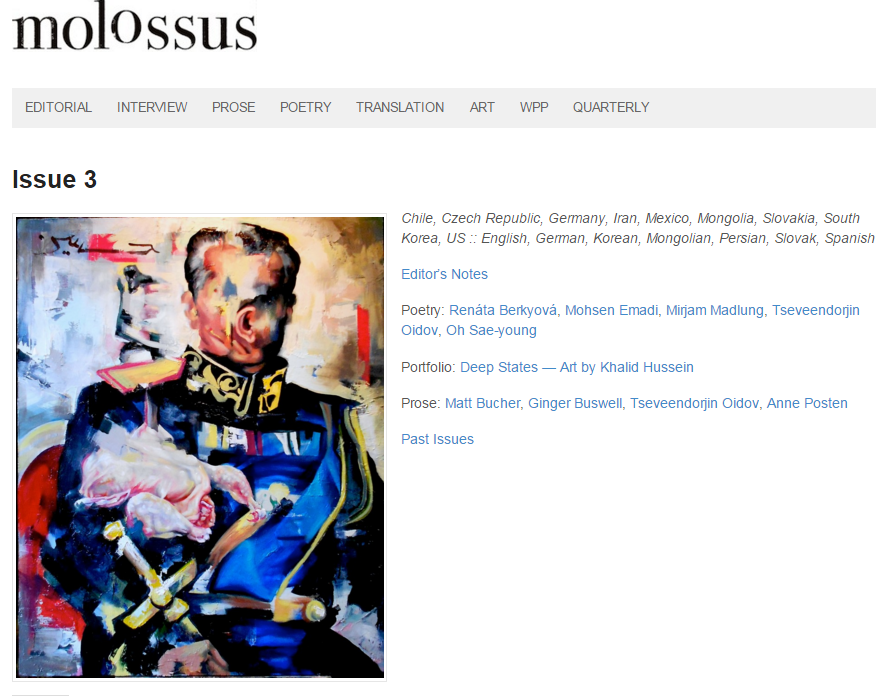
This week I wrote a piece of MEL magazine about job insecurity.
https://features.wearemel.com/company-loyalty-is-a-myth

I had a brief quote in this New Yorker piece about Infinite Jest.
http://www.newyorker.com/books/page-turner/beyond-infinite-jest

Posted: October 13th, 2015 | Author: Matt | Filed under: DFW, personal | Tags: bedfordavenue, braverman, brooklyn, clips, DFW, easternparkway, medium, paleking, personal, toniware, wesanderson, writing | No Comments »
I recently posted this article about Wes Anderson and Bye Bye Braverman over on simpleranger.net

One thing I didn’t mention there is that Braverman includes a scene filmed at the corner of Eastern Parkway and Bedford Avenue in Brooklyn. For a while, I lived a block north of there on Bedford. That intersection has changed a lot over the years so it was very cool to see it back in 1968.
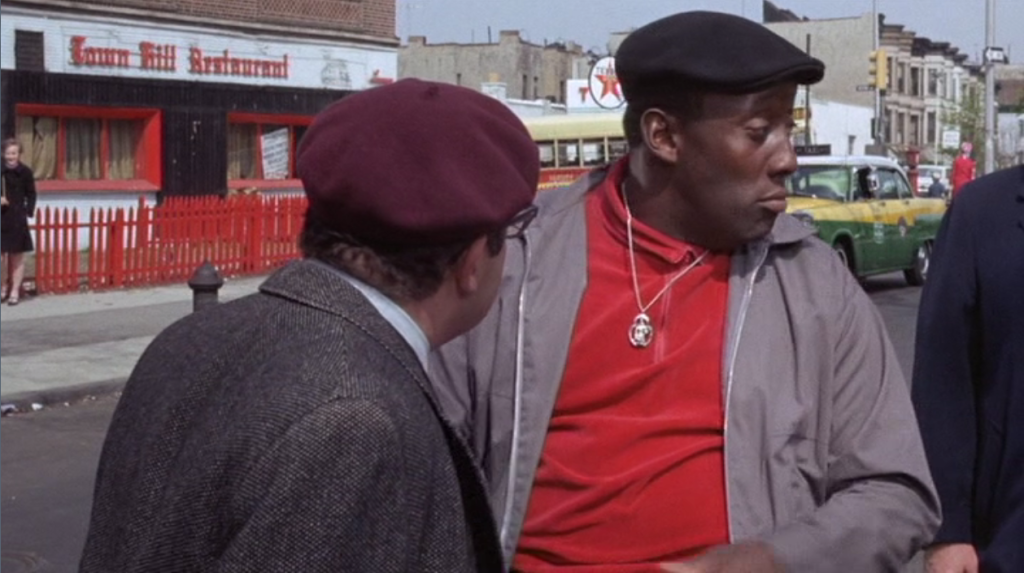
You can see the old Town Hill Restaurant in the background.
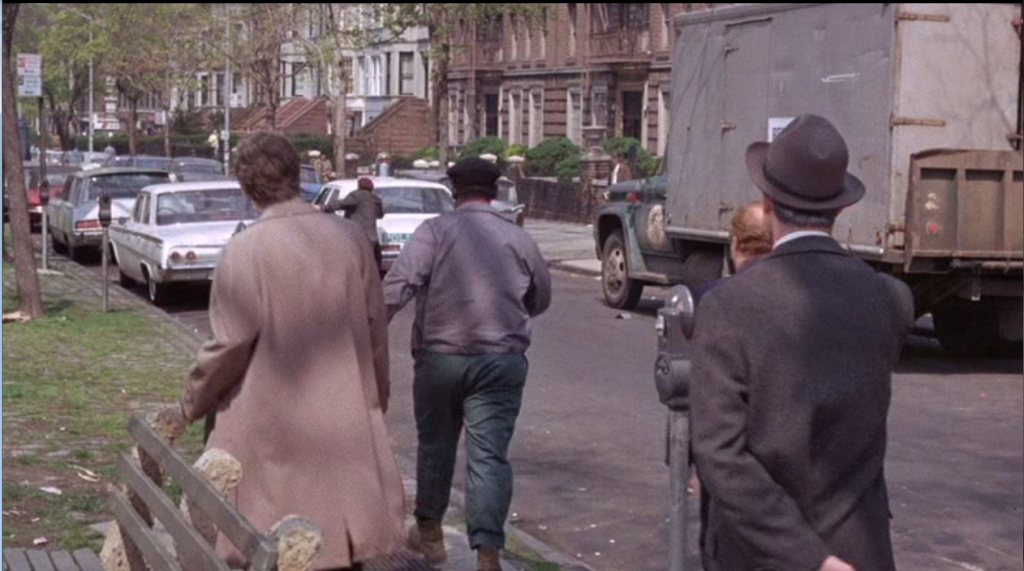
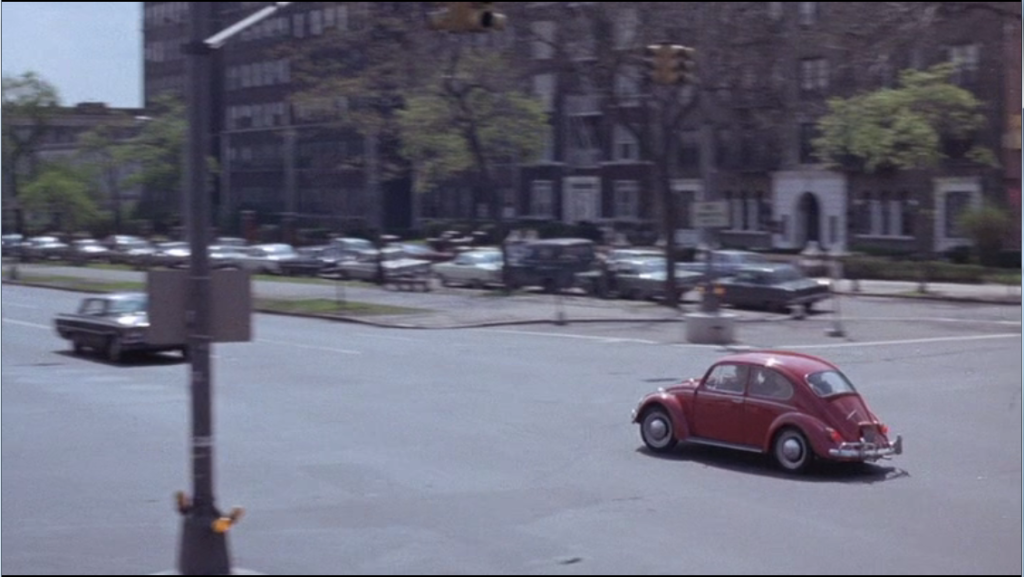
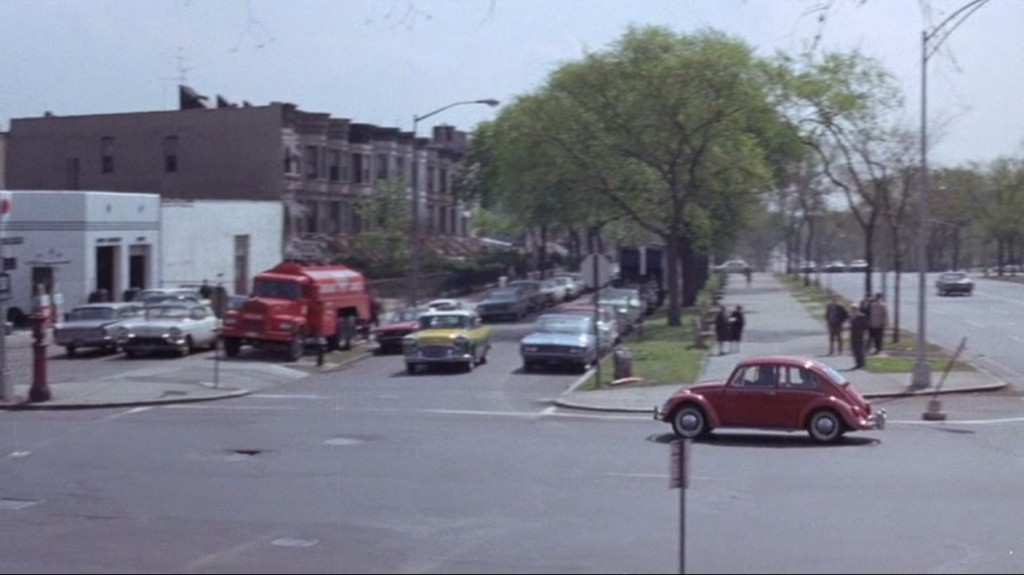
That Texaco station is long gone.
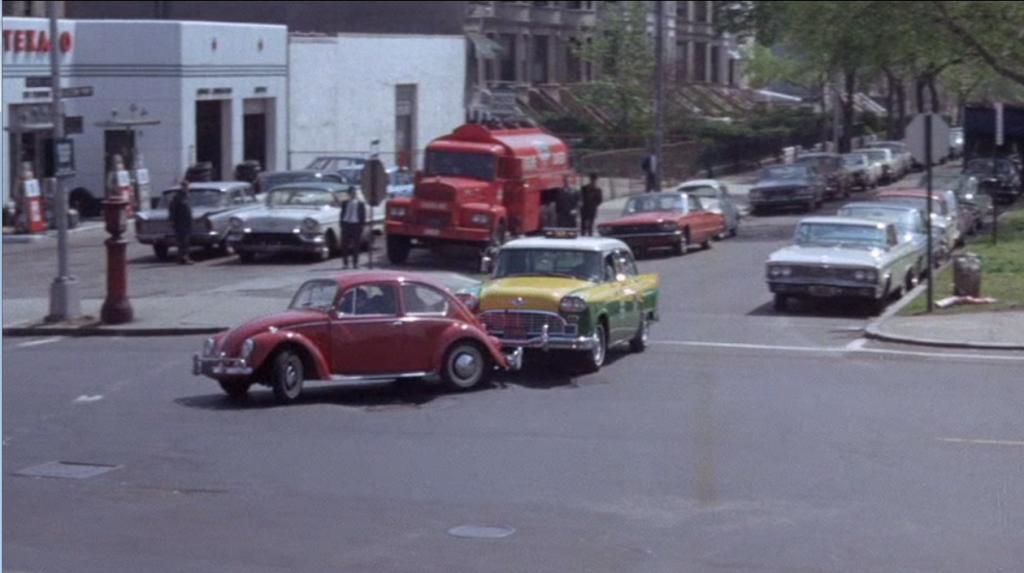
I also wrote about David Foster Wallace’s The Pale King and the character of Toni Ware over on Medium. The Pale King’s Trailer Park Queen.
Posted: June 2nd, 2015 | Author: Matt | Filed under: DFW | Tags: books, conversion, DavidFosterWallace, DFW, DFW_Conference, Fogle, Illinois, literature, paleking, writing | 1 Comment »
Below is a version of the paper I presented at the Second Annual David Foster Wallace Conference in Normal, Illinois, on May 29, 2015. I’ve removed the page citations, bibliography, and images in this version.
The Fogle Novella: Catalysts in the Conversion Narrative
There is a moment in Section 22 of The Pale King when “Irrelevant” Chris Fogle feels he must change the course of his life. This moment comes, appropriately enough, when he is “doing nothing”—simply watching television. As a self-confessed nihilist, all of his life’s choices up to this point seem equally irrelevant to him. He takes pride in his ambivalence. But the great spinning ball of “As The World Turns” (“You’re watching As The World Turns”) is an epiphany for him: his carelessness has cast him as an observer of his life rather than its chief actor. He says:
I knew, sitting there, that I might be a real nihilist, that it wasn’t always just a hip pose. That I drifted and quit because nothing meant anything, no one choice was really better. That I was, in a way, too free, or that this kind of freedom wasn’t actually real—I was free to choose whatever because it didn’t really matter.
Throughout his lengthy narrative, Fogle explains how he ultimately turned away from his life as a wastoid nihilist and became a responsible citizen and IRS tax examiner. How does this happen? The process was gradual and then rapid, but he attributes this change partly to “unexpected coincidences,” “changes in priorities,” and “making a choice of what was more important.” If we think of The Pale King as an explicitly religious novel, Fogle’s choice and his overall narrative of change can be interpreted along the lines of a conversion, like a sinner who is redeemed.
This essay discusses the structure of Fogle’s conversion narrative, the catalysts that force a change in his story, and the similarities his story shares with early American Puritan conversion narratives. Fogle’s Section 22 is long enough and self-contained enough to stand on its own and so I refer to it in places as “the Fogle novella” or just “the novella.” Throughout Fogle’s narrative, there are three main catalysts that instigate change within his life: 1) his father’s “Ozymandias” statement, 2) hearing the As The World Turns tagline, and 3) the Jesuit substitute’s speech at DePaul. As a literary construct, Fogle’s narrative mirrors the structure of Puritan conversion narratives, which Patricia Caldwell’s work has shown to be a primarily literary form masked as a religious element. Fogle’s story arc follows a surprisingly similar pattern and still adheres to the greater project of The Pale King: boredom as religious experience.
Like Infinite Jest, The Pale King is concerned with how we should live. Fogle’s story is vast and contains many important points about religion, Christianity, 1970s American history, drugs, tax, etc. Fogle is an aimless, lost young man, committed to the ethos of the 1970s: whatever. He grows up with divorced parents: a serious and stern father who is killed in a horrific train accident, and a freewheeling lesbian mother who smokes pot with him and opens a bookstore. With a transcript that looked like “collage art,” he tries to go to several different colleges, but nothing interests him. One day he stumbles into the wrong classroom and hears a lecture that changes his life. Eventually he finds his life’s purpose in the form of service to the IRS.
After high school Fogle drifted in and out of three different colleges, just going through the motions, bored to death. The first of several wake up calls that catalyzes and motivates Fogle to try to find a purpose in life is his strait-laced father inadvertently discovering him and his friends high, smoking marijuana, and covered in beer cans. It is the cliché of the father coming home early and discovering the party scene. His father then quotes Shelley’s poem “Ozymandias”—”Look on my works ye mighty and despair,” a poetic admission of failure in his own parenting and an embarrassment to the young Fogle since he doesn’t really understand the reference and feels small. But it provokes within him a moment of perfectly clear self-reflection and empathy with his father. In fact, Fogle says that his one occasion “sums up the whole period for me now, when I think of it.†The father’s flippant comment, combined with his lack of anger about the situation, gives Fogle a sense that true adults are capable of controlling their emotions and reacting to the world in a mature, meaningful way. Fogle realizes at this point that he has completely neglected his own emotional (and intellectual, and moral, etc.) development. The consequence of this neglect is that he is stunted, an emotionally underdeveloped child and still a burden to his parents.
The second catalyst that provokes Fogle into action is his inadvertently hearing the tagline of the soap opera “As the World Turns†repeated on television. This statement “You’re watching As the World Turns, You’re watching As the World Turns†has a profound effect on his sense of coasting through life as a passive observer, a witness to his own story. Hearing that phrase shakes his entire existential foundation. He says:
I knew, sitting there, that I might be a real nihilist, that it wasn’t always just a hip pose. That I drifted and quit because nothing meant anything, no one choice was really better. That I was, in a way, too free, or that this kind of freedom wasn’t actually real — I was free to choose ‘whatever’ because it didn’t really matter. But that this, too, was because of something I chose — I had somehow chosen to have nothing matter. It all felt much less abstract than it sounds to try to explain it. All this was happening while I was just sitting there, spinning the ball. The point was that, through making this choice, I didn’t matter, either. I didn’t stand for anything. If I wanted to matter — even just to myself — I would have to be less free, by deciding to choose in some kind of definite way. Even if it was nothing more than an act of will.
Although this is the moment when Fogle’s aversion to his previous way of living intrudes into his consciousness, his free will requires another, more forceful catalyst to affect real change in his life. And it happens the very day after he hears “You’re Watching As The World Turns.â€
The Pale King, as structured by Michael Pietsch, introduces Fogle’s character in the middle of the novel, as part of the series of videotaped interviews with IRS examiners under the guise of producing an informational film about the agency called “Your IRS Today.†However, it is hinted that one of the higher-ups might be using these interviews not to actually produce a documentary video, but as revealing surveillance opportunities to spy on employees. In a note, Wallace questions the idea “Film interview a sham?â€
Either way, it’ difficult to surmise Wallace’s original “tornadic” structure of the Pale King and how the IRS video device figures into the larger whole. One theory could be that Wallace wanted to show the path that leads the characters to become IRS examiners, since many of the characters are shown as children and then as adults. For Fogle, the interview as such functions as a narrative device for a confession, with the setup resembling a confession booth. Rather than the examiner speaking to a priest through a screen, he or she is speaking directly into a camera, alone.
“It’s an IRS examiner in a chair, in a room. There is little else to see. Facing the tripod’s camera, addressing the camera, one examiner after another.â€
Responding to an open-ended interview question is therapeutic for some and requires the respondent to be self-conscious and reflective. Wallace uses the structure of the fictional IRS video to present a series of discussions on tax civics as well as the personal route toward redemption exemplified by Fogle’s story.
In fact, there are a number of actual IRS informational and recruitment videos, though none in the style of the fictional “Your IRS Today.” One of the most powerful recruiting tools the IRS used in the mid-1980s was a widely-distributed pamphlet called “IRS: The Whole Picture.” It provides “Seven Good Reasons To Join the IRS.” They are: 1) Your Choice of Jobs, 2) Extensive Field Work, 3) A High-Tech Employer, 4) Great Benefits, 5) Make a Difference Right Away, 6) A Nationwide Organization, and 7) A Chance to Serve the Public Good. The seven reasons are presented as popular myths that the IRS can rebut. The real-life recruitment of IRS examiners strongly relied on the concepts of choice, free will, making a difference, and public service. The myths that the recruitment brochure tries to rebut force the potential employee to confront the reality of the world such as it really is, as opposed to the way the IRS might be represented in the media or the nation’s collective consciousness. This is somewhat similar to the function of The Pale King itself, and these are the same values and factors that Fogle cites when he thinks about the influence of the third catalyst in his conversion – the Jesuit substitute’s speech. He says:
“I think part of what was so galvanizing was the substitute’s diagnosis of the world and reality as already essentially penetrated and formed, the real world’s constituent info generated, and that now a meaningful choice lay in herding, corralling, and organizing that torrential flow of info. This rang true to me, though on a level that I don’t think I was even fully aware existed within me.”
This also matches up with Fogle’s father’s claim that there are only two kinds of people in the world: “people who actually understood the technical realities of how the real world worked (via, his obvious point was, math and science), and people who didn’t.†After this galvanizing diagnosis of the world, it’s somewhat easier for Fogle to be swayed by the incentives offered at his local IRS recruitment center. An epic snowstorm is presented as an impediment to his road to Damascus, but Fogle persists, unwavering in his need for verifiability and his commitment to thoroughly reading the manuals presented to him.
Conversion narratives are as old as Christianity itself, starting with the apostle Paul. The original followers of Christ had to make an active choice to follow this new religion. Although Paul’s conversion in particular was divinely thrust upon him, the event is used as evidence of the supernatural power of God. However, the theological framework of Christian conversion has evolved dramatically from the origins of the religion, through the protestant reformation, the publication of the first English Bible, and the rise of globalization. If we look at conversion narratives in the tradition of American literature, the first surviving narratives are ‘a series of fifty-one “Confessions†given at the First Church of Cambridge, Massachusetts, between 1637 and 1645, and recorded in a small private notebook by the minister of the church, Thomas Shephard. Patricia Caldwell examined these confessions in her study “The Puritan Conversion Narrative: The Beginnings of American Expression†and found that early English and American conversion narratives “share some basic literary techniques – a heavy reliance on Scripture, a certain amount of objective self-examination and orderly arrangement.
Puritanism is unique here because Puritan churches allowed only the elect to join and new candidates were required to recite a conversion story in order to gain full membership in the congregation. This reliance on story carried over to the prominence of sermons. John Cotton, one of the first theologians of the Massachusetts Bay Colony believed the Bible could not save souls only by being read. To him the first step in conversion was the “pricking of the hardened heart” of the convert by hearing the word of God in a sermon. Unlike Catholicism, which emphasized the sacraments on the altar, American Puritanism, which favored predestination, focused on the words delivered from the pulpit. Compare this with the final catalyst in Fogle’s conversion – the lecture from the Jesuit substitute teacher. Fogle ambles into the wrong classroom only to hear a sermon on accountancy that changes his life forever. Fogle is not changed by reading a novel or an essay – it is only by hearing the Jesuit minister preach about the heroism of the everyday accountant that Fogle averts a life of wasted promise. “Gentlemen, you are called to account,†he exhorts.
All of the catalysts in Fogle’s conversion narrative the Ozymandias line from his father, the As The World Turns tagline, and the Jesuit’s speech—are things that he heard. Unlike his father, who “read constantly,†Fogle is most susceptible to change when the meaningful words are spoken rather than printed.
The structure of Puritan conversion narratives were so consistent that it was often joked that “many spiritual narratives of the period were not so much composed as recited. Edmund Morgan summarized the most common sequence of events as “knowledge, conviction, faith, combat, and true, imperfect assurance. I would argue that Fogle’s narrative follows a similar formula and it would be easy enough to apply Morgan’s summary to the catalysts of change in Fogle’s narrative. The common structure of these narratives often meant Puritans “had great difficulty both in defining religious experience and in believing they had had it.†This doubt about the narrative itself manifests itself in Fogle’s opening when he says “I’m not sure I even know what to say. To be honest, a good bit of it I don’t remember.†And when he blames much of his story on “unexpected coincidences†and says “Obviously these sorts of unexpected things can happen in all sorts of different ways, and it’s dangerous to make too much of them.â€
The fact that Puritans also required a conversion narrative to obtain church membership parallels Fogle’s explanation of those who join the IRS. They are the elect. “It’s not a very common type—perhaps on in 10,000—but the thing is, that the sort of person who decides that he wants to enter the Service really, really wants to and becomes very determined, and will be hard to put off course once he’s focused in on his real vocation and begun to be actively drawn to it.â€
Fogle delivers his testimony, his conversion narrative, back into a camera that he believes will carry his message into the world via a documentary film, but we learn in Section 24 that Fogle is widely despised for his lengthy “vocational soliloquyâ€, earning him the nickname “Irrelevant.†While the details of Fogle’s story might be irrelevant in the context of the IRS office, his narrative forms the core of The Pale King’s project. In one of the Notes & Asides at the end of the book, Wallace notes that “Irrelevant Chris is irrelevant only on the subject of himself? On all other topics/subjects, he’s focused & cogent and interesting?†Wallace chose to represent Fogle’s transformation from wastoid to auditor as an overtly religious conversion partly because it fits into the greater mission he was striving toward in what became The Pale King:
Bliss—a second-by-second joy + gratitude at the gift of being alive, conscious—lies on the other side of crushing, crushing boredom.
This bliss is a type of salvation, something that must be worked toward rather than graciously received. Just as Puritans demanded of their members an explanation of how they arrived at redemption, Wallace uses Fogle to illustrate how the most complex decisions of our lives, the ones that determine our fate and our careers, evolve over time. “Aversion” comes from the Latin avertere which means to turn away from. And Fogle turns away from his old life, his feckless, wastoid nihilism, not to join the church, but to simply live a more meaningful life.
Posted: June 5th, 2014 | Author: Matt | Filed under: DFW, personal | Tags: Carlisle, DFW, fantods, Greg Carlisle, Howling Fantods, InfiniteJest, interview, literature, NaturesNightmare, Nick Maniatis, personal, Sideshow, SSMG, wallace-l, writing | No Comments »
Over at The Howling Fantods, Greg Carlisle and I were interviewed by Nick Maniatis about the history of Greg’s books Elegant Complexity and Nature’s Nightmare.
Part 1:Â http://www.thehowlingfantods.com/dfw/critical-analysis/natures-nightmare-interview-part-1.html
Part 2:Â http://www.thehowlingfantods.com/dfw/critical-analysis/natures-nightmare-interview-part-2.html
Part 3:Â http://www.thehowlingfantods.com/dfw/critical-analysis/natures-nightmare-interview-part-3.html
Posted: April 30th, 2014 | Author: Matt | Filed under: personal | Tags: clips, GertrudeStein, personal, TenderButtons, writing | No Comments »
Over at the Austin Chronicle, I reviewed this zine from Monofonus Press. It’s a companion piece to Gertrude Stein’s classic Tender Buttons, which turns 100 years old this year.
I’ve also started writing some reviews for Publishers Weekly, but I’m not supposed to reveal which ones I wrote.









